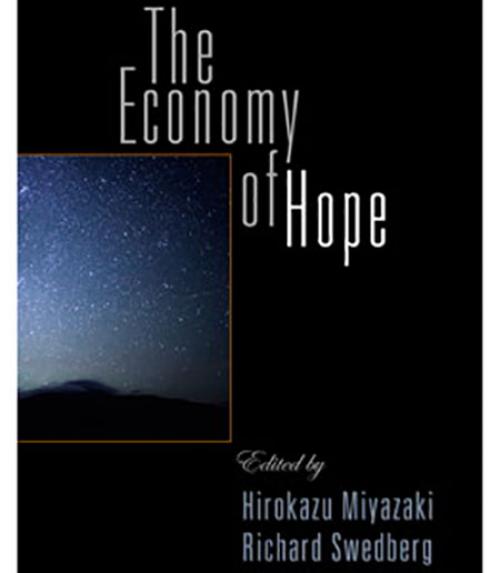When we experience losses that seem insurmountable, how do we once again plant the seeds of hope? Hope is an integral part of social life. Yet, hope has not been studied systematically in the social sciences.
“Economy of Hope,” edited by Hirokazu Miyazaki and Richard Swedberg, investigates hope in a broad range of socioeconomic situations and phenomena across time and space. In the collection of essays, contributing authors from a variety of disciplinary vantage points describe the resilience of hope and the methodological implications of studying it. From farm collectivization in Romania in the 1950s to Barack Obama’s 2008 political campaign of hope in the financial global crisis, hope becomes an essential framework for an analysis of economic phenomena.
Oct. 17, 2017 "Chat in the Stacks" with Hirokazu Miyazaki and Richard Swedberg, sponsored by Olin Library.
Cornell contributors to the volume include Swedberg and Miyazaki, as well as Annelise Riles, professor of anthropology and law.
Miyazaki is director of the Mario Einaudi Center for International Studies, John S. Knight Professor of International Studies, and professor of anthropology. He is author of “The Method of Hope: Anthropology, Philosophy, and Fijian Knowledge” and “Arbitraging Japan: Dreams of Capitalism at the End of Finance.”
Swedberg is professor of sociology at Cornell University. He is author and editor of several books, including “Principles of Economic Sociology.”




